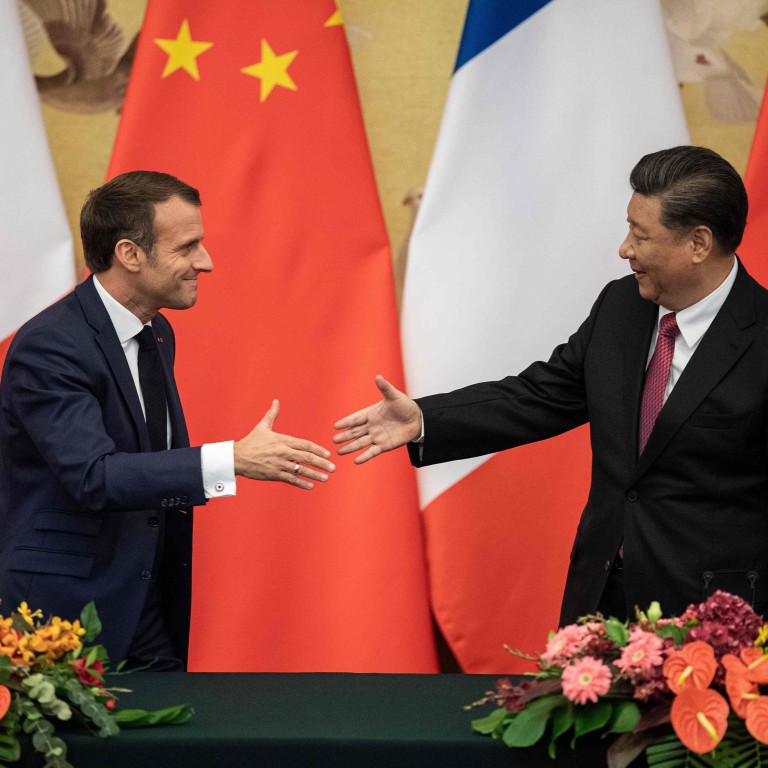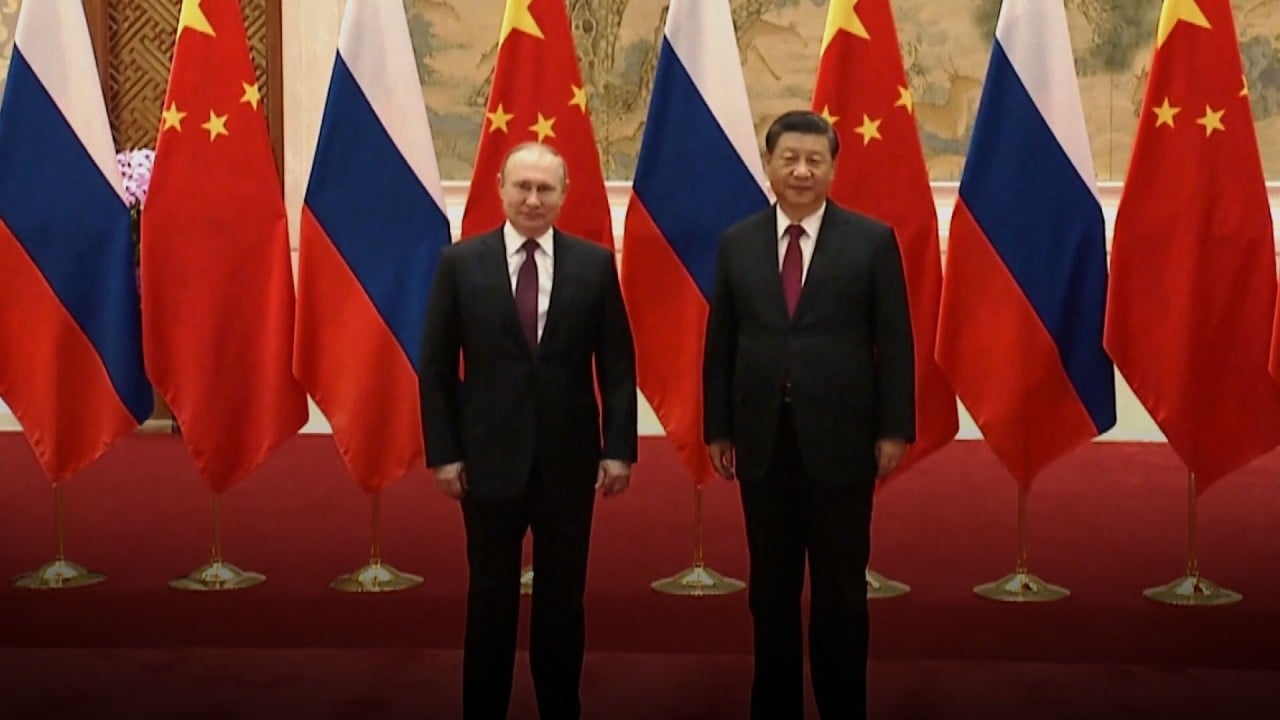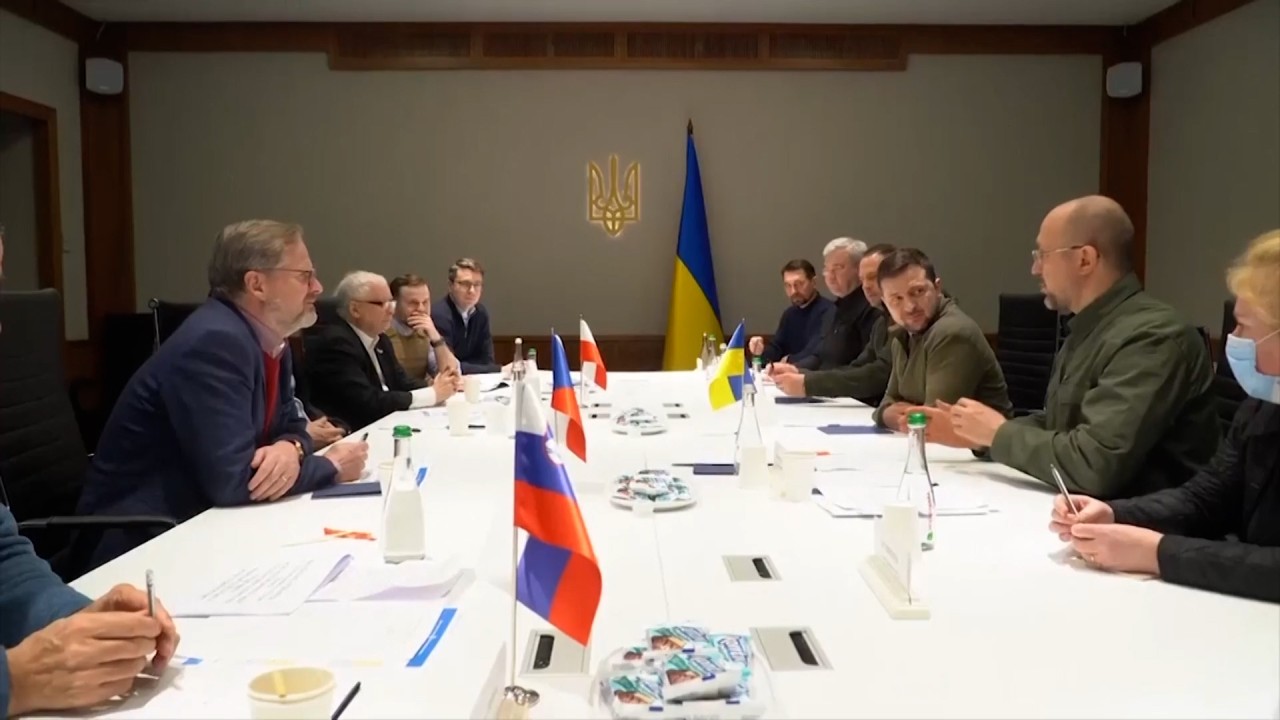
Exclusive | China asks European leaders to meet Xi in November. But will they accept?
- The trips would mark a return to Beijing for Western European leaders following almost three years of a zero-Covid policy that has prevented in-person diplomacy
- The proposed date would likely be right after the 20th party congress, expected to be held in October.
Invitations have been sent to German Chancellor Olaf Scholz, French President Emmanuel Macron, Italian Prime Minister Mario Draghi and Spanish Prime Minister Pedro Sánchez, according to a senior source familiar with the situation.
China and EU ties on knife-edge as Merkel says goodbye
A “heated debate” is ongoing in Paris on how to deal with the invitation, but leaders of Europe’s most powerful nations are known to favour dialogue with China on issues such as Ukraine, food security, and economic relations.
“It is difficult to say no to China, especially to Xi,” said the senior diplomat.
There were discussions last year about Macron visiting along with former German Chancellor Angela Merkel, who was keen to bid farewell to a China with which she had fostered close ties.
“It’s of interest to speak to China because of Ukraine, which is the number one priority in Europe. Food security [will be on the agenda], China is a major agricultural power, and also Europe-China relations cannot be held hostage to US-China relations, and the midterms would have an impact,” said the unnamed senior diplomat.
“So for us, probably for every head of state, we want to see where China is at, at that moment.”
US, Japan, South Korea and China toil on new North Korea sanctions
The governments of France, Italy and Spain did not respond to requests for comment. The Chinese government declined to comment.
“Please understand that we always inform about the chancellor’s travels at the appropriate time, usually the week before,” a spokeswoman for the German Chancellery said when asked about the invitation.
Long-standing economic grievances will be discussed during bilateral talks on Tuesday, where the EU expects to secure a number of technical agreements to help open the Chinese market further to European firms, particularly in the agricultural space.
But these talks were painful to secure. Brussels’ calls went unanswered for months, with Xi’s economic adviser and Vice-Premier Liu He only committing to a date after he had completed talks with US Treasury Secretary Janet Yellen earlier this month, sources said.
The role of Chinese ambassador to the EU has been vacant since December, when Zhang Ming departed to lead the Shanghai Cooperation Organisation.
European officials and diplomats have raised the issue with Beijing on a fortnightly basis ever since. Borrell also asked Wang about the vacancy at the G20 foreign ministers’ meeting in Bali earlier this month.
Chinese officials have responded that the list of candidates is “so high-level” that it cannot be decided upon until the 20th National Congress of the Chinese Communist Party, expected to be held later this year. Tongue-in-cheek, they point to the fact that China has not had an ambassador to close ally North Korea for a full year.
European Parliament passes landslide vote on alleged Xinjiang rights abuses
Diplomats have also been told that Beijing was concerned by the growing animosity towards China in the European Parliament, where there has been a series of resolutions passed recently that criticised policies in Hong Kong and Xinjiang in stern fashion.
In particular, Chinese officials have pointed to the barring of their ambassador to the United Kingdom, Zheng Zeguang, from the country’s parliament over Chinese sanctions on British lawmakers last year.
“That’s a problem because China wants to make sure the successor to Zhang Ming will be well-treated and not be humiliated like Zheng was in London,” the senior diplomat said.
Last week, in a reflection of the waning appetite for engagement with China across Central and Eastern Europe, Beijing hosted a dialogue with 11 countries from the region.
It marked a slimming down of the previous “17+1” format, which Lithuania officially exited last year, and which others have reportedly been considering abandoning.
Hungary offered to host a “commemorative ministerial” in Budapest this year to mark the 10th anniversary of the establishment of the 16+1, according to a diplomatic source familiar with the event.



